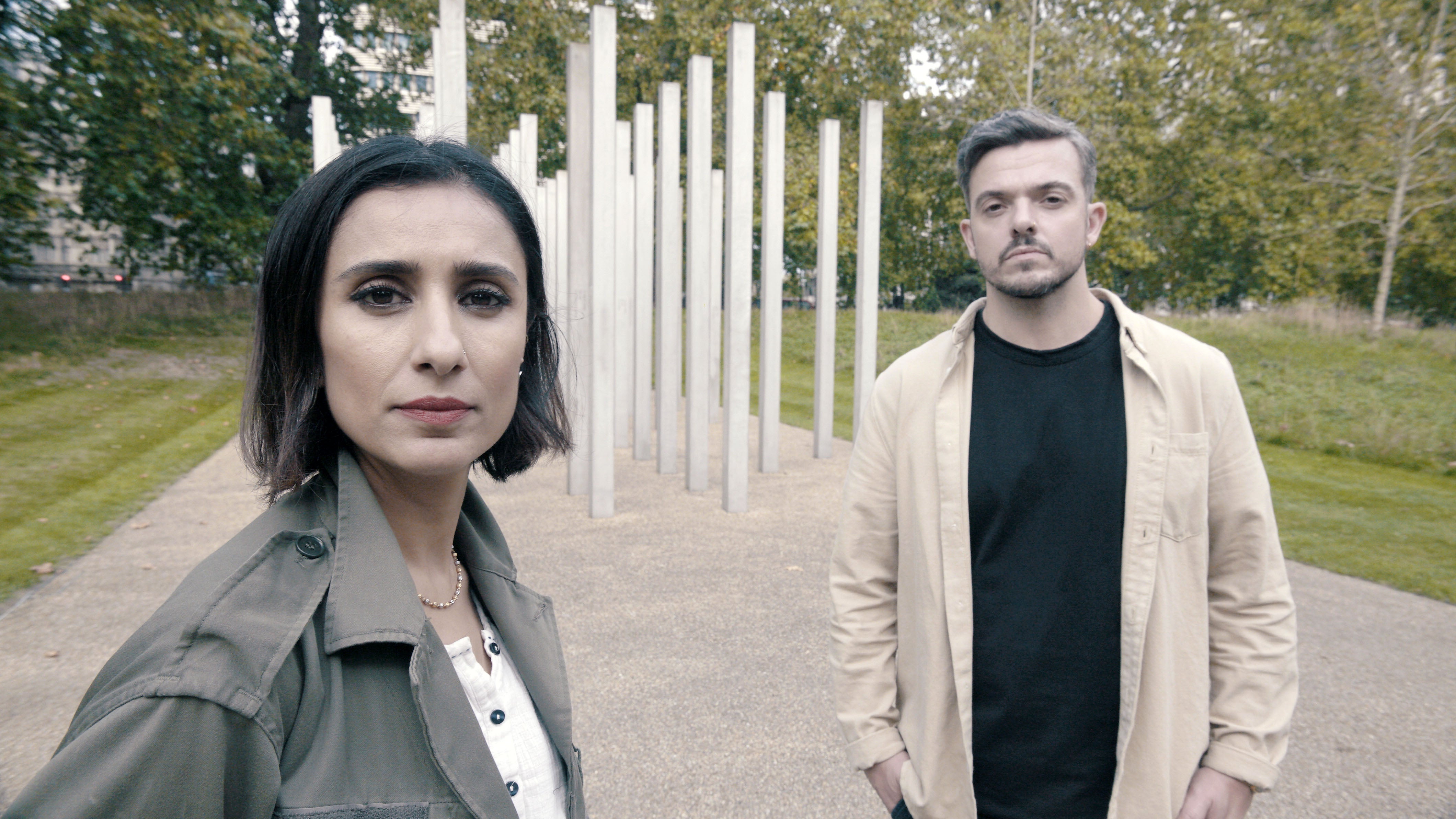Saved by a Stranger review: It’s enough to make anyone choke up
Anita Rani’s series goes in search of individuals who have changed the lives of others during the biggest events in living memory

The four-part series, Saved by a Stranger (BBC2), is an innovative variation on the theme of the reunion show. It’s unexpectedly moving and, in the warm, sensitive hands of Anita Rani, it always keeps a respectful distance from prurience and intrusion. So, well done, team. Like the rest of the genre over the decades – This Is Your Life, Long Lost Family, and Who Do You Think You Are? – it’s full of dead ends, tantalising leads, hugs, tears, and reflections about lives lived, loved, and lost. If nothing else, such viewing experiences can promote some possibly much-needed perspective on one’s own travails, which is never a bad thing.
The twist with Saved by a Stranger is that it weaves the deeply individual and personal with major news stories from the past. In this first episode, we meet Karl, a dancer, newly arrived in London in 2005 to find fame but narrowly avoiding being randomly killed on a tube train in the 7/7 bombings 16 years ago.
Like some others, he found solace as he lay among the bloody wreckage and the dead bodies when a stranger extended her hand to him and told him he would be OK, which he was. Such extreme traumas can do funny things to people, not least having Londoners make conversation with their neighbours. Karl also had an extraordinary spiritual “moment” that leaves Rani looking startled: “I remember having this feeling of desperation. I’m not religious but I prayed to God and said to him that if you let me out of here, I won’t be gay anymore”.
Karl did make it out and he didn’t alter his sexual preferences. But he does suffer from survivor guilt and longs to meet the woman who he believes saved him. Eventually, trawling through databases and the internet, Rani and Karl find a woman, who could be the one who held his hand, although she doesn’t match his memory of her as a short blonde. No matter, he is able to thank her, and, at long last, apologise for then shoving in front of her as he rushed to get out of the carriage.
As it happens, the apology is unnecessary as Susan thinks she was looking around for her phone so wasn’t in a hurry to get out of the carriage. Indeed, it might not have even been her who comforted him, but someone else because many survivors of the terror attacks never came forward and so Karl’s stranger may never be identified. Still, the meeting with Sarah helped Karl relieve his survivor’s guilt and maybe find a little more peace.
The second story has a much neater ending. Emina and her family escaped from Bosnia during the Yugoslav Civil War in 1994, and are now happily living in Birmingham. Emina simply wants to thank the doctor who arranged their safe transit when she was aged four, at a time when there were few remotely safe routes out of the siege. All she has is a name, but the Saved by a Stranger team gets to work with Emina, returning to Sarajevo and tracing contacts of the missing doctor. Eventually, Dr Natasa Savic is traced to Holland, where she had also fled to a new life, and Emina duly meets her and says thank you. It’s enough to make anyone choke up.
If I was being churlish and mean, I’d point out that it isn’t actually that hard to find Dr Natasa Savic by using Google, but I think I’d be missing the point. The point about being saved by a stranger is that you really need to reconnect not just with that person, but with the whole episode, to become as reconciled to it as you can, and that means more than a few clicks and a phone call. You need to confront places again, such as Emina walking through the graveyards used as sniper dens in Sarajevo, and the simple but powerful 7/7 memorial in London’s Russell Square, close by where Karl emerged from his near-death experience. So many of us promise ourselves we’ll make journeys like this, but we never do. All we have is the vicarious version on TV.
Subscribe to Independent Premium to bookmark this article
Want to bookmark your favourite articles and stories to read or reference later? Start your Independent Premium subscription today.

Join our commenting forum
Join thought-provoking conversations, follow other Independent readers and see their replies